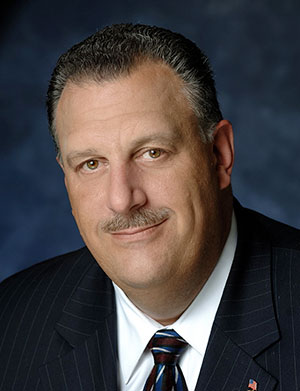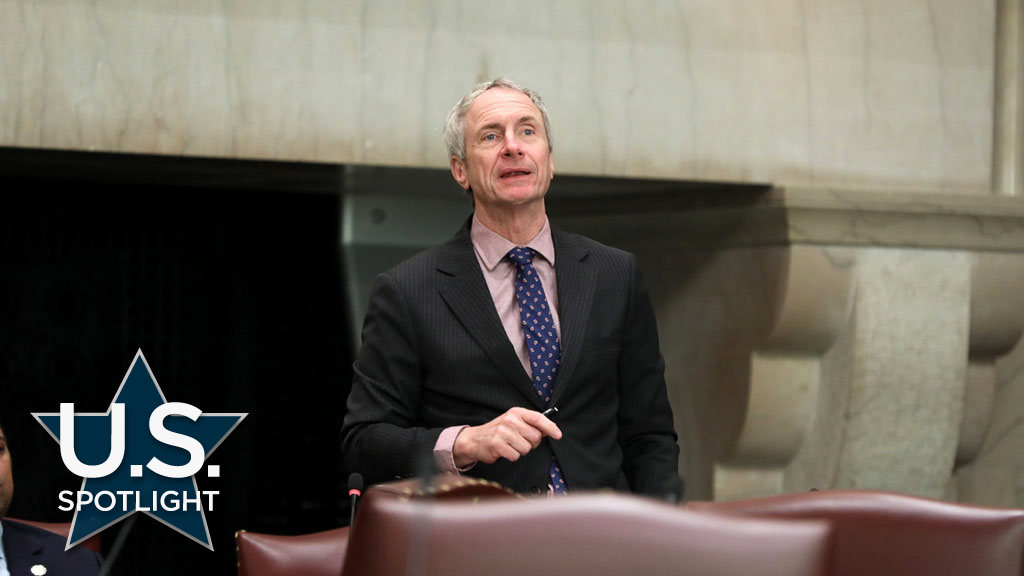Proposed New York state legislation that would require all contractors bidding on public projects to disclose any past legal violations through a public registry has a strong lobby of support.
But the bill is not without its critics.

If passed, it would “significantly help to reduce wage theft, tax fraud and workers’ compensation fraud,” says Gary LaBarbera, president of the New York State Building and Construction Trades Council (NYSBCTC).
But Brian Sampson, president of the Associated Builders and Contractors (ABC) Empire State chapter, sees the bill as an attack on the non-unionized sector which has been increasingly winning public contracts, normally the domain of unionized builders.
The ABC represents more than 420 members in the non-unionized sector.
The bill’s lead sponsor, Democratic Senator Sean Ryan says under current legislation when county and small municipal governments tender contracts, they don’t have access to everything they need to know about their bidders.
If these municipalities pull a contract when their contractor has problems meeting its obligations those municipalities often don’t have the money to withstand lawsuits from the contractor, he told the Daily Commercial News.
“It is why you need to be transparent and get the information out there first.”
LaBarbera says the current VendRep System to certify contractors to bid on contracts does not apply “the entire scope of projects covered by the bill, nor does it provide a publicly accessible database to view contractor information.”
Currently, contractors can provide fewer details to municipalities on issues such as unemployment insurance and workers’ compensation, apprenticeship status and worker safety records, LaBarbera says.
“This (legislation) will give those municipalities the toolbox to do that. It is a simple matter of transparency,” says Ryan.
While all bidders on public projects in the state are subject to a prevailing wage law, Sampson says open shop contractors can often do projects for less because “collective bargaining agreement(s) and the antiquated work jurisdictional rules make the cost of public construction more expensive” for unionized contractors.
He says the bill backed by the Carpenters’ Union is an attempt to “blacklist” non-union contractors from public projects.
LaBarbera says while the building trades “are obviously always pushing for union jobs in construction, the bill doesn’t tip the scale in favor of the union. If anything, it tilts the scale in favor or law-abiding businesses.”
The Carpenters’ Union president asks why upstanding contractors would have a problem disclosing information for a small fee ($200) in order to rid construction of “bad actors.”

“This bill has fees and small fines but is not punitive in nature,” adds LaBarbera.
Ryan says the New York State Comptroller currently collects some of the information on contractors for state departments but counties, towns and school districts don’t have access to the data.
He says in one case a small municipality let a contract to a firm which lied about being veteran-owned and had previously been caught on that lie and was hit with a $3 million state violation.
He says he doesn’t know how big the problem is but the public registry accessible to all municipalities created under the proposed legislation would resolve many issues.
Sampson sees it creating “an extra level of work” for contractors.
GCs will be required to submit the list of subcontractors in the original bid, information they won’t always know, particularly on design-build contracts, he points out.
Sampson adds he fears contractors making “honest mistakes” on paperwork required (be them unionized on non-unionized firms) could be unfairly penalized under the legislation.
“Somebody keys in a wrong number or misinterprets a chart and now you’re the bad person (contractor), whether you did it intentionally or not.”
Furthermore, he says the Department of Labor “will often reinterpret a rule or regulation when there is a turnover in (their) staff. There is so little consistency on the enforcement side.
“I have not come across anyone in the industry that is reading it the way the senator would like us all to believe it is written,” Sampson adds.
But LaBarbera says the bill has “tremendous support. We have had productive conversations with the (state) chamber and other stakeholders and are answering any questions as they come up. Governor (Kathy) Hochul has long been a proponent of fair contracting policies and government transparency. This legislation fits right into those categories.”
By Dec. 31, Governor Hochul could sign, amend and sign, veto the bill, or it could die on the order table.
Ryan, who hasn’t seen a lot of opposition “other than Brian Sampson’s group,” says he optimistic it will pass.
“I’m optimistic it will save the taxpayers a lot of money.”











Recent Comments
comments for this post are closed